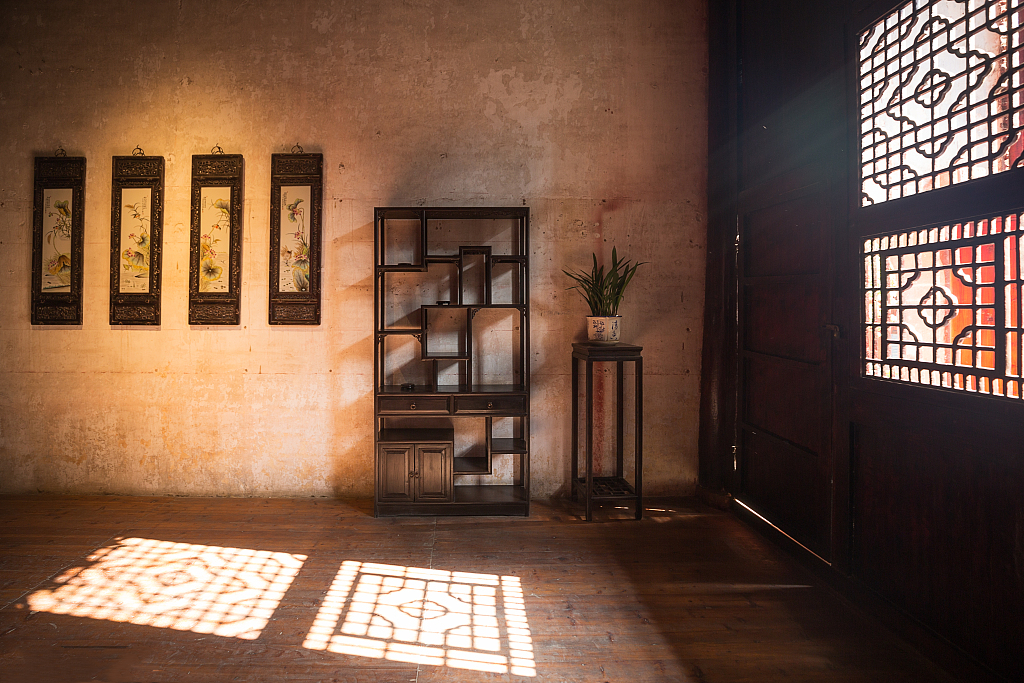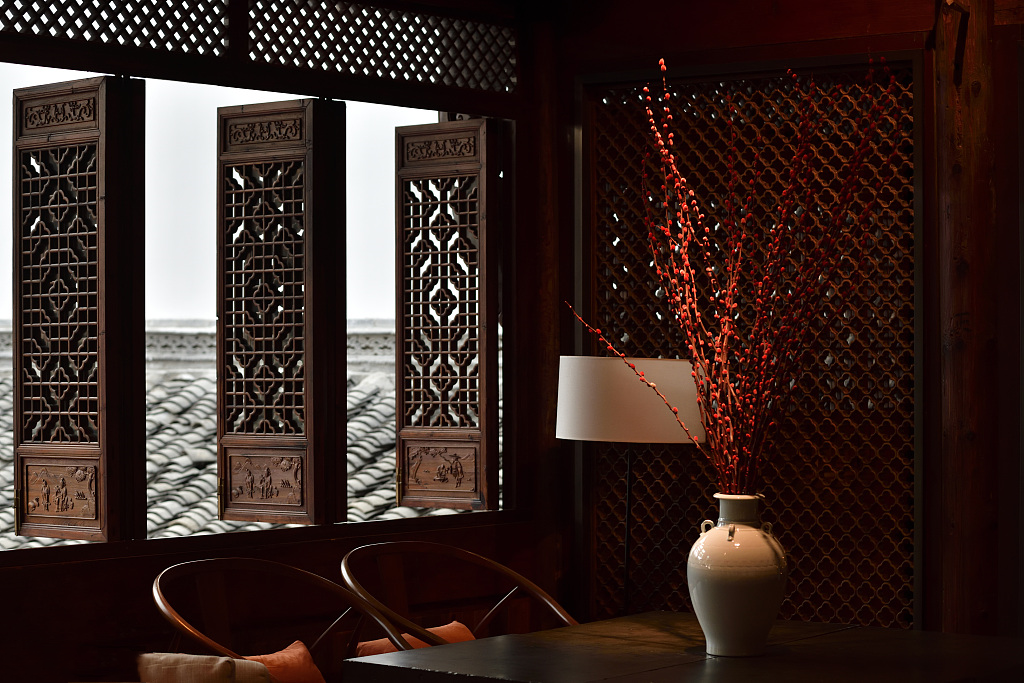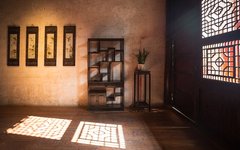 It is well known that all things in heaven and earth embody the concept of Yin and Yang. In terms of Feng Shui for residential spaces, achieving a balance between Yin and Yang is extremely important. Therefore, when adjusting the Feng Shui of a residence, it is crucial to ensure that this balance is not disrupted.From the perspective of Feng Shui, what are the key points for maintaining Yin-Yang balance in residential Feng Shui? Key Points for Yin-Yang Balance in Residential Feng Shui
It is well known that all things in heaven and earth embody the concept of Yin and Yang. In terms of Feng Shui for residential spaces, achieving a balance between Yin and Yang is extremely important. Therefore, when adjusting the Feng Shui of a residence, it is crucial to ensure that this balance is not disrupted.From the perspective of Feng Shui, what are the key points for maintaining Yin-Yang balance in residential Feng Shui? Key Points for Yin-Yang Balance in Residential Feng Shui 1Effects of Excessive Yin EnergyExcessive Yin energy can lead to financial loss and hinder wealth accumulation. A strong presence of Yin energy manifests as a lack of vitality and liveliness in the home, making it difficult to attract wealth. From the perspective of negative energy, damage to the Five Elements and imbalance of Yin and Yang represent negative energy; an excess of Yin and deficiency of Yang also signify negative energy, which can drive away wealth.Excessive Yin energy can attract impurities. It is known that places such as cemeteries, hospitals, morgues, crematoriums, and areas that are dark and lack sunlight are heavy with Yin energy, often inhabited by malevolent spirits and wandering souls. A home with excessive Yin energy is prone to attracting impurities, which can drive away wealth.2Methods to Increase Yang Energy IndoorsOpening windows to allow sunlight in is essential. For dark and damp homes or those that rarely see sunlight, it is advisable not to reside there. Some people may choose to live in such places for short-term benefits, but they often end up regretting it later.If one must live there, it is recommended to open windows on the south or east side or to enlarge existing windows to increase natural light and Yang energy. Care must be taken to maintain the balance of Yin and Yang; having too many windows can lead to an excess of Yang energy, which is also not beneficial for wealth accumulation.3Methods for Adjusting Yin-Yang BalanceThis method involves the use of Feng Shui tools, typically assessed and determined by a professional Feng Shui master, who will make judgments and recommendations for harmonizing the energy of the residence. This includes clearing and adjusting the energy pathways, stimulating the flow of the Five Elements’ energy, and achieving a balanced Yin-Yang energy field. According to the theory of residential hexagrams, the space between heaven and earth is filled with primordial energy.The center of the house serves as the Taiji (Supreme Ultimate) point, dividing the space into eight hexagram positions. At this point, the energy in the eight directions is balanced and orderly, neither excessive nor deficient, and does not interfere with one another. In an empty room that is uninhabited and devoid of furniture, this primordial energy remains balanced. However, once people move in and place items and furniture, the energy fields in the eight directions can become disturbed and disordered, potentially leading to an unbalanced state.Considerations for Balance in Residential Feng Shui
1Effects of Excessive Yin EnergyExcessive Yin energy can lead to financial loss and hinder wealth accumulation. A strong presence of Yin energy manifests as a lack of vitality and liveliness in the home, making it difficult to attract wealth. From the perspective of negative energy, damage to the Five Elements and imbalance of Yin and Yang represent negative energy; an excess of Yin and deficiency of Yang also signify negative energy, which can drive away wealth.Excessive Yin energy can attract impurities. It is known that places such as cemeteries, hospitals, morgues, crematoriums, and areas that are dark and lack sunlight are heavy with Yin energy, often inhabited by malevolent spirits and wandering souls. A home with excessive Yin energy is prone to attracting impurities, which can drive away wealth.2Methods to Increase Yang Energy IndoorsOpening windows to allow sunlight in is essential. For dark and damp homes or those that rarely see sunlight, it is advisable not to reside there. Some people may choose to live in such places for short-term benefits, but they often end up regretting it later.If one must live there, it is recommended to open windows on the south or east side or to enlarge existing windows to increase natural light and Yang energy. Care must be taken to maintain the balance of Yin and Yang; having too many windows can lead to an excess of Yang energy, which is also not beneficial for wealth accumulation.3Methods for Adjusting Yin-Yang BalanceThis method involves the use of Feng Shui tools, typically assessed and determined by a professional Feng Shui master, who will make judgments and recommendations for harmonizing the energy of the residence. This includes clearing and adjusting the energy pathways, stimulating the flow of the Five Elements’ energy, and achieving a balanced Yin-Yang energy field. According to the theory of residential hexagrams, the space between heaven and earth is filled with primordial energy.The center of the house serves as the Taiji (Supreme Ultimate) point, dividing the space into eight hexagram positions. At this point, the energy in the eight directions is balanced and orderly, neither excessive nor deficient, and does not interfere with one another. In an empty room that is uninhabited and devoid of furniture, this primordial energy remains balanced. However, once people move in and place items and furniture, the energy fields in the eight directions can become disturbed and disordered, potentially leading to an unbalanced state.Considerations for Balance in Residential Feng Shui 1Balance of Movement and StillnessThe balance of movement and stillness, both inside and outside the residence, is important. Generally, the structure of the house is static (inner), while the external space is dynamic (outer). If the external area is cramped and lacks sufficient space, it can become static, blurring the distinction between movement and stillness, leading to an imbalance of Yin and Yang.Internally, the bedroom serves as a resting area (inner) and is a still zone, so it should be arranged to promote a sense of tranquility. Conversely, the living room is a gathering place for family and guests (outer) and is a dynamic zone, so its Feng Shui layout should convey a sense of movement. If the bedroom is arranged as a dynamic area, it will undoubtedly affect rest and sleep.2Ventilation and LightingVentilation and lighting also embody Yin and Yang, requiring a gentle balance—neither too strong nor too weak. Feng Shui emphasizes bright living rooms and dark bedrooms; thus, the living room should receive ample sunlight and not be overly dark, while ventilation should be strong. A room that is too bright can disrupt rest, and ventilation should be moderate; excessive airflow can scatter energy. In general, the ceiling represents Yang, while the floor represents Yin.Therefore, the ceiling should be smooth and bright, with minimal decoration, and colors should be fresh and subtle. The floor should be solid and level, with colors that can be slightly darker.The ceiling color should not be darker than the floor color; otherwise, it resembles dark clouds overhead, which is not ideal for the home. Additionally, areas such as the main entrance, terrace, and doors should be dynamic zones, and static items like sofas or beds should not be placed nearby, as prolonged proximity to dynamic areas can scatter one’s spirit.3Balance of Fullness and EmptinessFullness gives a sense of crowding and liveliness, fostering harmony but can easily block the flow of energy. Emptiness, on the other hand, can create a sense of spaciousness and lack of vitality, leading to feelings of powerlessness. This indicates that the size of the house should be coordinated with the number of inhabitants; if the house is too large or too small, it can significantly impact the home’s Feng Shui.
1Balance of Movement and StillnessThe balance of movement and stillness, both inside and outside the residence, is important. Generally, the structure of the house is static (inner), while the external space is dynamic (outer). If the external area is cramped and lacks sufficient space, it can become static, blurring the distinction between movement and stillness, leading to an imbalance of Yin and Yang.Internally, the bedroom serves as a resting area (inner) and is a still zone, so it should be arranged to promote a sense of tranquility. Conversely, the living room is a gathering place for family and guests (outer) and is a dynamic zone, so its Feng Shui layout should convey a sense of movement. If the bedroom is arranged as a dynamic area, it will undoubtedly affect rest and sleep.2Ventilation and LightingVentilation and lighting also embody Yin and Yang, requiring a gentle balance—neither too strong nor too weak. Feng Shui emphasizes bright living rooms and dark bedrooms; thus, the living room should receive ample sunlight and not be overly dark, while ventilation should be strong. A room that is too bright can disrupt rest, and ventilation should be moderate; excessive airflow can scatter energy. In general, the ceiling represents Yang, while the floor represents Yin.Therefore, the ceiling should be smooth and bright, with minimal decoration, and colors should be fresh and subtle. The floor should be solid and level, with colors that can be slightly darker.The ceiling color should not be darker than the floor color; otherwise, it resembles dark clouds overhead, which is not ideal for the home. Additionally, areas such as the main entrance, terrace, and doors should be dynamic zones, and static items like sofas or beds should not be placed nearby, as prolonged proximity to dynamic areas can scatter one’s spirit.3Balance of Fullness and EmptinessFullness gives a sense of crowding and liveliness, fostering harmony but can easily block the flow of energy. Emptiness, on the other hand, can create a sense of spaciousness and lack of vitality, leading to feelings of powerlessness. This indicates that the size of the house should be coordinated with the number of inhabitants; if the house is too large or too small, it can significantly impact the home’s Feng Shui.

